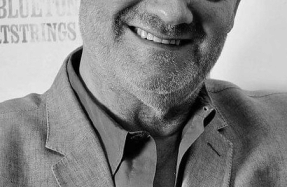RAISING THE BAR THE STORY OF PUB ROCK

The British blues boom of the late 1960s – a movement kick-started by John Mayall’s Bluesbreakers (which famously featured, at various times, guitarists Eric Clapton, Peter Green, and Mick Taylor) – came out of the pubs, or at least the clubs that thrived in smoke-filled rooms in numerous boozers dotted around Britain. Immediately prior to this, it was those same venues that played host to bands such as the Rolling Stones, The Yardbirds and The Who, in the middle of a decade that gave us Swinging London, recreational drugs and free love. All of this would lead to the invention of rock music, but it was also the dawn of pub rock.
In London, at various points of the compass were the key venues: The Crawdaddy (at the Station Hotel in Richmond), Klooks Kleek (the Railway Hotel, West Hampstead, conveniently close to Decca studios for live recordings), Bluesville (at the Hornsey Wood Tavern), The Manor House at Finsbury Park, The Fishmonger’s Arms in Wood Green, and The Black Prince in Bexley. But by the turn of the decade, as Led Zeppelin began their assault on the senses of the international music community, those venues were all but gone.
The reason was clear. Many of the R&B musicians that had come up through the clubs had by now achieved stardom in the USA, and this left a void at home. Cream (who helped to establish the arena circuit), Fleetwood Mac, the Jeff Beck Group, Ten Years After and, of course, the mighty Zep all led the way, and, during what became known as the ‘second British invasion’ of America, most of us up-and-coming musicians dreamed of becoming superstars as quickly as possible. Dues-paying on the spit-and-sawdust circuit had simply lost its appeal, and consequently the UK pub and club scene was in steep decline. Symbolically, Klooks Kleek closed its doors in January 1970 with a show by former Mayall drummer Keef Hartley’s band.
By now, the five big British record companies had a stranglehold on the music scene. Alongside the powerful concert promoters was a phalanx of young A&R scouts working for the majors’ in-house progressive labels such as Harvest (a vanity imprint of EMI), Deram (Decca), Dawn (Pye), Vertigo (Philips), Neon (RCA), or the one notable independent label, Island Records. New bands found themselves in a catch-22 situation: without a record deal you couldn’t get an agent, and without an agent you couldn’t get the gigs that
You’re reading a preview, subscribe to read more.
Start your free 30 days





